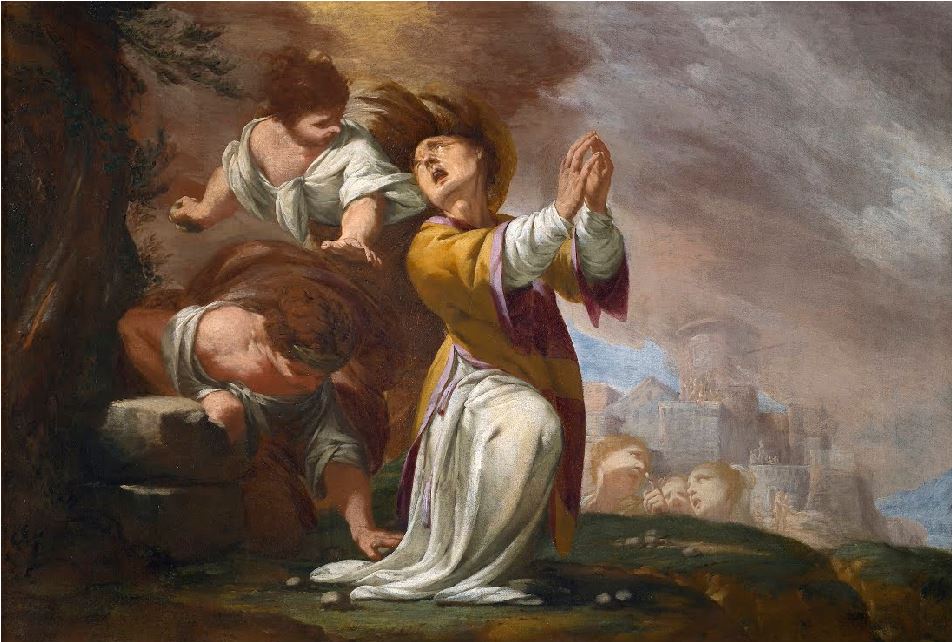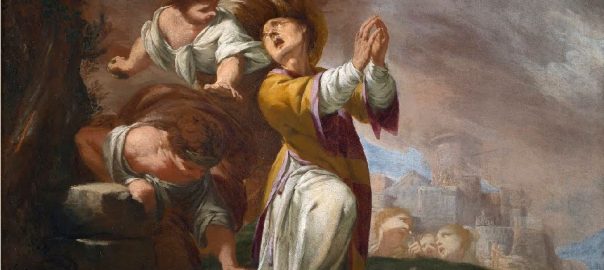Sermon in Vestermarie Lutheran church, Bornholm, December 26th 2018

While they were stoning him, Stephen prayed, “Lord Jesus, receive my spirit.” Then he fell on his knees and cried out, “Lord, do not hold this sin against them.” When he had said this, he fell asleep. (Acts 7,59-60)
We all know that Christmas time means peace and joy. But what we often forget is, that it is also a time for commemorating persecuted Christians. In the midst of celebrating Christmas, we should keep in mind that not all Christians are lucky to live in peace and safety.
While the days after Christmas are popularly conceived as a time for relaxation and recreation after the busy period before Christmas, traditionally churches have celebrated Stephen, the first martyr of Christianity. Depending on ecclesiastical tradition, the celebration takes place somewhere between the 25th-27th of December.
According to the Acts of the Apostles (Acts 6:8-14, Acts 7,54-60), Stephen was stoned by a mob of angry Pharisees after having spoken against them and their practices. Fearing that his confession of Jesus of Nazareth would mean a change of the customs held in so high esteem by the Jewish religious authorities, the religious leaders set out to get rid of Stephen. They dragged him out of the city and stoned him.
Shortly before passing away, Stephen, just like Jesus before him, prayed that God would forgive his perpetrators. This is an important detail in the story, which should not just be seen as a description of Stephen’s virtue. The prayer of forgiveness also says something about God: God forgives.
Thus, the message in the story of Stephen, though it sounds harsh and brutal compared to the Christmas story, is fundamentally the same as that about Jesus in the manger: That God forgives, despite our enmity.
Now, Stephen may have been the first Christian martyr, but he surely wasn’t the last. Jesus himself warned his disciples, that they would be persecuted. For many years after Jesus’ death and resurrection this came true, as the Roman authorities brutally persecuted Christians frequently.
As many good theologians have noticed, the first Christians wasn’t just persecuted for preaching some harmless message about the afterlife, but for proclaiming that Jesus was Lord in a society where Caesar was said to be lord (Zahnd). And as is discernible from the story about Stephen, the Jewish religious authorities persecuted the first Christians for proclaiming a message that would alter their religious customs. By declaring the end of the Mosaic law, Christians were threatening to destroy the entire foundation of Judaism.
By his death Jesus has set us free from all religious repression. The only law now is love (see e.g. Rom. 13:8-10). Whatever religious practices we choose to follow, is a matter between the individual and God (see Rom. 14:22). This doesn’t mean that Christians should not follow the norms of society, but we are not to obey the law as if it was divine or absolute, but for the sake of peace. The gospel sets us free from religious rules and laws once and for all.
The Christian gospel is a message of freedom. But this is exactly why it is met with so much opposition. Jesus himself once declared that he did not come to bring peace, but a sword, that would break up social structures as people would turn against each other because of him (Matt. 10:34). The word of God is a two-edged sword, that cuts through all social, religious and political norms and traditions that binds us. Obviously the message of freedom is met with heavy opposition by people who put all their hope in absolute religious and political ideals – which is why Jesus warned that he did not bring peace, even if his message was in itself a message of peace.
Stephen was the first to experience the brutal consequences of proclaiming the gospel against the religious elites. Stephen was stoned for proclaiming a message of freedom and unconditional forgiveness. This proclamation was intolerable for the religious authorities of his time, as it is for religious authorities of all times. Even Christians have from the beginning of the Middle Ages until our time persecuted other Christians, who was seen to take the message of freedom and unconditional forgiveness too far.
Those who preach a gospel of universal grace and freedom from religious rules and laws will always be met by enmity from religious elites of all kinds. Today 75% of all persecuted for their religious beliefs are said to be Christians. In North Korea, China, India and most Muslim countries, Christians face harsh treatment for confessing Jesus as Lord. Bibles are confiscated, churches shut down, and converts to Christianity put to death.
As in New Testament times Christians today are not just persecuted for believing a harmless philosophy about personal piety, but for proclaiming a message of freedom – freedom from all sorts of religious, ideological and political totalitarianism.
In societies that worships the state or the dictator as god, or hold to a religion, that sees God not as loving and forgiving but as demanding utter subjection to a set of rules that divide groups of people into insiders and outsiders, believers and unbelievers, men and women, slaves and free, and so on, a gospel of freedom is seen not just as a deviation from the norm, but as a threat to the entire foundation of society. For this, many Christians around the world face persecution even today.
By commemorating the martyrdom of Stephen we also commemorate those Christians who are persecuted today. But we are also thereby reminded, that God forgives even those who persecute his people, as God forgives all.
Amen.
(in case you’re wondering, “but what about the ‘unforgiveable sin?'”, see also: The blasphemy against the Holy Ghost)
